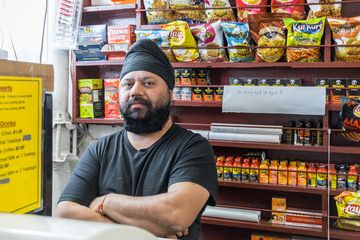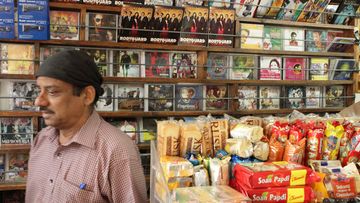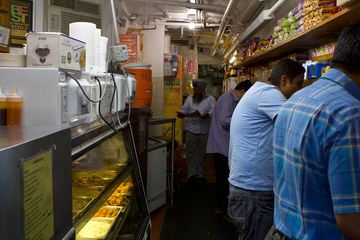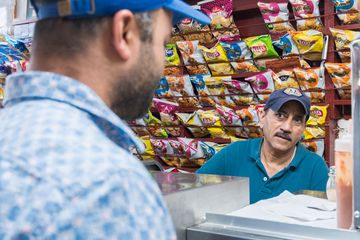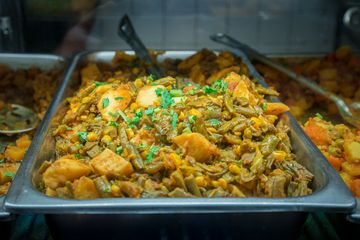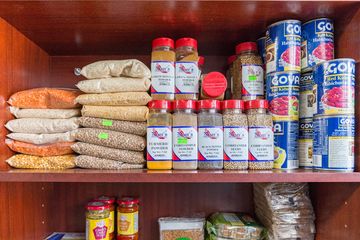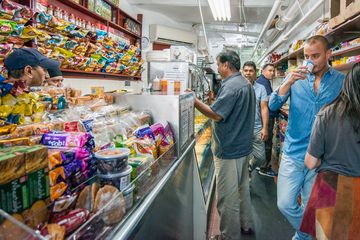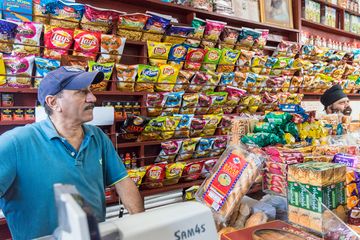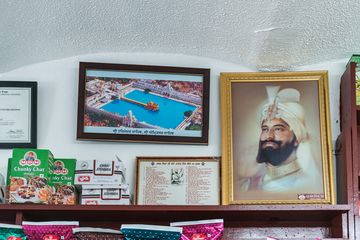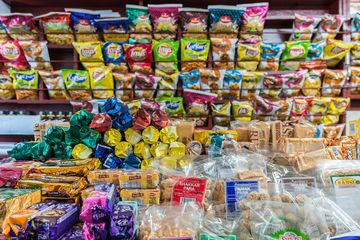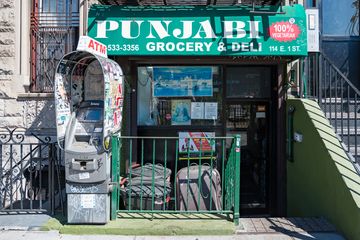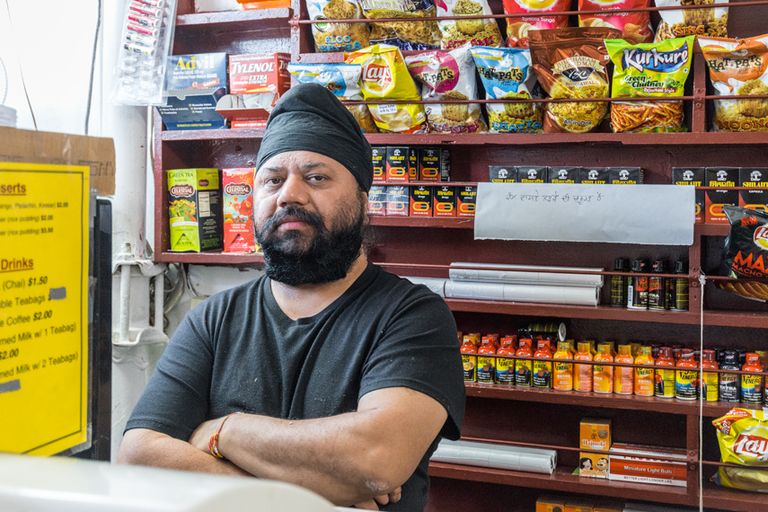
Punjabi was the very first business that I stepped into during the summer of 2011, when I first began walking on the side streets of Manhattan. Every time that I was in the East Village over the next few years, I always made a point to stick my head inside and say hello. I worried about Punjabi being able to survive, as the construction on Houston/1st Street was intruding more and more on their space.
The deli has been in this location for over 20 years, and was accustomed to having multiple cab drivers lining up outside throughout the day and evening. For quite a while, the street was not accessible to vehicles, but somehow everyone still managed to figure out a way to get to Punjabi and grab some of their award-winning, vegetarian, Indian fare, or simply a cup of coffee and some snacks.
The shop’s owner, Indian immigrant Kulwinder Singh, is fittingly referred to by his loyal customers as Jani — an Indian nickname meaning “known to everyone.”
Kulwinder originally left India to work on oil ships and bulk carriers based in Greece, but he landed in Brooklyn in 1980. While finding his feet, he picked up an assemblage of jobs, including a stint as a cab driver. He spent his days navigating the city in search of clients but never failed to drop by his friend’s Indian deli for a satisfying and affordable meal. Some years later, he bought the business with partner Satnam Singh, and he has since upheld its reputation for fast, flavorful food.
Amid the hustle and bustle of running a Manhattan deli that is open from early in the morning until late into the evening, Kulwinder remains a devout Sikh, and he reserves two hours a day for meditation. Upon taking over the business, Kulwinder focused his menu on cuisine from India’s Punjab region and made it vegetarian in deference to his religion. Though the menu items on offer change based on seasonal availability, some options are a constant, including the chickpeas and saag curry and the delicious fried samosas piled high with yogurt, hot sauce and onions.
